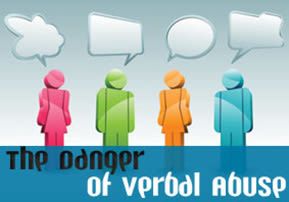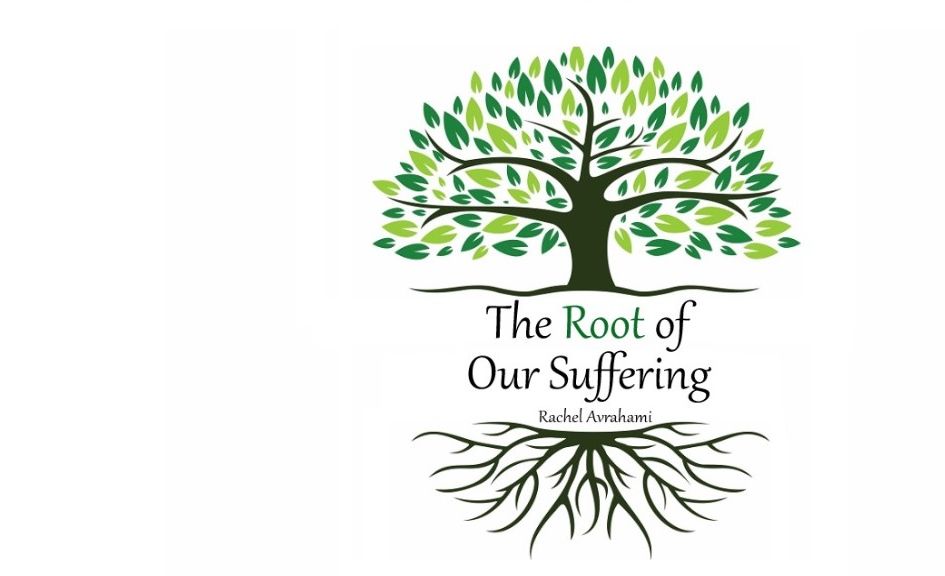
The Danger of Verbal Abuse
Some think that having a laugh on another person's expense is good sport, but in actuality, it's a heinous transgression of Torah that’s tantamount to murder…

Translated by Rabbi Lazer Brody
The Danger of Verbal Abuse, Part 1
There are 2 types of mitzvot in the Torah – between man and Hashem (Shabbat, tefillin, kashrut, to name a few), and between man and fellow man (dealing fairly in commerce, paying a worker on time, loving our fellow human, etc.). This time of year, during the Three Weeks, it’s especially important to discuss the mitzvot between man and fellow man in general, and specifically about the severity of insulting or causing anguish to one’s fellow human.
Many people bring grief to their fellow human without batting an eyelash. But, most people are unaware that causing pain or grief to another person, not only by verbal insult but even with a mere gesture of the body, is a severe transgression of Torah, even worse than eating something unkosher. The reason is that the teshuva for doing something against Hashem is relatively simple, and Hashem is always forgiving. But, when a person harms his fellow man, he must now placate his fellow man in addition to doing teshuva to Hashem. That’s no simple task.
In the Book of Leviticus, 25:17, the Torah commands, “You shall not bring grief to your neighbor.” Our sages learn from this passage that the Torah expressly forbids all forms of causing embarrassment, sadness, and humiliation to our fellow human, again, not only by word of mouth, but by a mere gesture. In other words, if your rabbi is making a sermon and you don’t like what he says, and you react by turning up your nose at him or by dismissing his words with a wave of your hand, you’ve just committed a severe transgression of Torah. This mitzvah, that’s called in Hebrew “Issur Onaat Devarim” or the “prohibition of causing grief to another person” is probably the most violated mitzvah in the Torah, which has a dangerous negative backlash on the violator. Let me give you an example – the Gemara teaches that if a husband causes his wife to shed even one tear, he’s subject to the death penalty. The transgression of causing grief to another person is very serious.
Our sages explain that verbal insult in certain aspects is worse that murder. Why? A murdered person gets killed once. But the victim of public humiliation relives the verbal attack every time he or she sees the person that caused them the grief, so it’s as if they suffer the pain all over again time after time. Our famous 13th CE sage Rebbe Yehuda HaChassid calls verbal insult “unapparent murder”. In fact, the Gemara in tractate Bava Metzia says that it’s better for a person to jump into a fiery furnace than to humiliate another person. Sound exaggerated?
As a rabbi, and particularly as a rabbi that tries to help people as much as possible, I’ve noticed a peculiar phenomenon – when people make teshuva, they run to the man-and-G-d mitzvot – Shabbat, kashrut, mikva, Torah learning – but they often neglect the real teshuva, adam l’chavero – man & fellow man. Why do we call that the real teshuva? The answer is that we come to this world to perfect our character – to be less brutal, less arrogant, more kind, and more considerate. The way a person observes the commandments that govern one’s relations between man and fellow man is a barometer to the quality of his or her character. For example, you can’t be a tzaddik – even if you know the Gemara by heart – if you cheat someone or don’t repay a debt.
Not long ago, a famous Israeli singer came to me – not a religious person, but getting stronger. He complained that last year he made a ton of money, but in the last two months, he hasn’t hooked a single engagement. Not only that, but all his album sales have inexplicably plummeted. I asked him what his marital peace was is like – he told me that he quarreled with his wife eight weeks ago, and since then, he hasn’t spoken to her. “There you go,” I said – nothing saddens a wife like the verbal freeze. “If you sadden her, don’t expect your life to be a rose garden. This is no joke.”
Not long ago, a very religious woman, whom we’ll call “Sara” came to me. She didn’t have kids after almost eight years of marriage. The woman had a feeling that something was connected to the death of her teacher from the seminar, our version of girls high school. The story goes that the teacher gave a term paper assignment to her 12th grade class. Sara, then a 12th grader, didn’t prepare the assignment. By that time, the teacher was already sick with a terminal disease that ultimately claimed her life a few weeks later. When the teacher returned the graded term papers, she called the young lady and apologized, “I must have misplaced your paper, Sara. I haven’t been feeling well lately – please forgive me!” The teacher never once suspected that Sara was lying, but Sara didn’t have the courage to tell the teacher not to feel bad. The teacher went to the grave blaming herself for misplacing Sara’s term paper, when it never existed.
Sara did serious soul-searching, and told me that she thinks there’s a connection between her not having children and between her deceiving the teacher. She didn’t know what to do. “No problem, “ I said. “The Code of Jewish Law tells you exactly what to do – take 10 people to the teacher’s grave site, and ask her forgiveness.” Sara did, and within one month, she became pregnant.
A young man of 18 from LA wrote me crying that he’s done everything he can to make teshuva; in addition, he’s listened to all our CDs, read The Garden of Emuna, and goes to synagogue every day. Yet, he still feels sadness all the time. I asked him if he ever made someone else especially sad. He told me that he had an 11th grade math teacher that he couldn’t stand, and he and his buddies did every prank in the book to try and make the teacher quit. “There’s the culprit,” I told him. “Until you ask forgiveness from the teacher, it doesn’t matter if you learn whole Talmudic tractates by heart – you’ll be in trouble.”
This should be a warning to anybody that makes a habit out of cutting other people down, passing slam books, or making fun of others. Whenever a person saddens another person, it’s like sinking into deep spiritual debt – the debt will have to be repaid in this world, and if not, a person will have to come back to this lowly earth for an entire reincarnation just to set the records straight. All the fires of Purgatory and 24 hour-long fasting don’t cleanse the blemish to a soul that causing grief to another person causes. Some people think that having a laugh on another person’s expense is good sport, but in actuality, it’s suicide.
Rabbi Akiva says that loving one’s neighbor as oneself is the underlying principle of the entire Torah, and all the rest is elaboration. Let’s engrave that on our hearts, amen.











7/23/2009
Why are you minimizing mitzvot? This sounds OK to me, but it seems like you are minimizing mitzvot between man and Hashem. They are both important and equal – why the emphasis on only one?
7/23/2009
This sounds OK to me, but it seems like you are minimizing mitzvot between man and Hashem. They are both important and equal – why the emphasis on only one?
7/22/2009
So easy to be on your high horse and forget this I feel that the Jewish community has become very shallow. The mitzvos between man and G-d are easy to keep in the sense that they require mesiras nefesh but not character correction. Also, everyone sees them and people are judged based on them – the black hat, the coat, the tzitzis, the kosher hechsher, whatever.
Between man and man is so much more serious, but it’s ignored because it requires serious introspection and work. People think they are such big tzaddikim while they transgress! TY